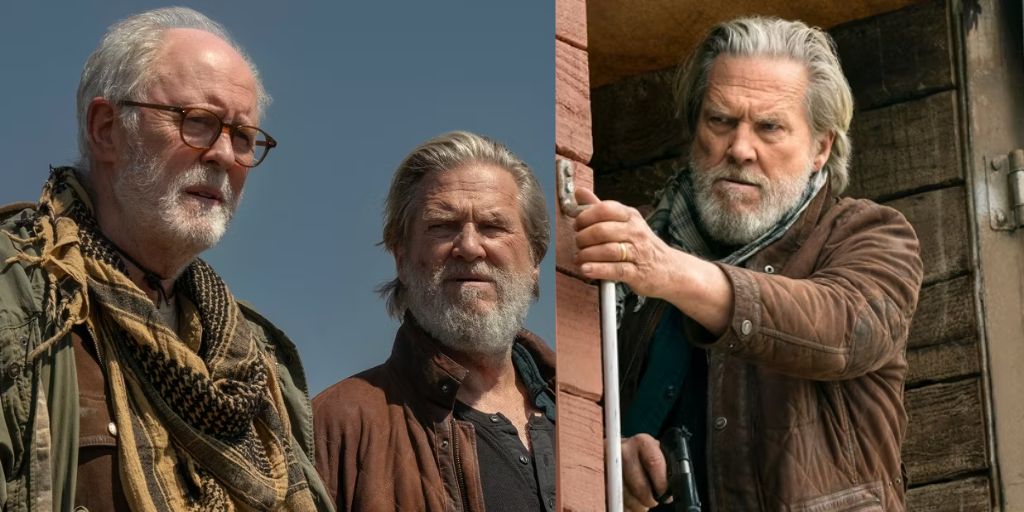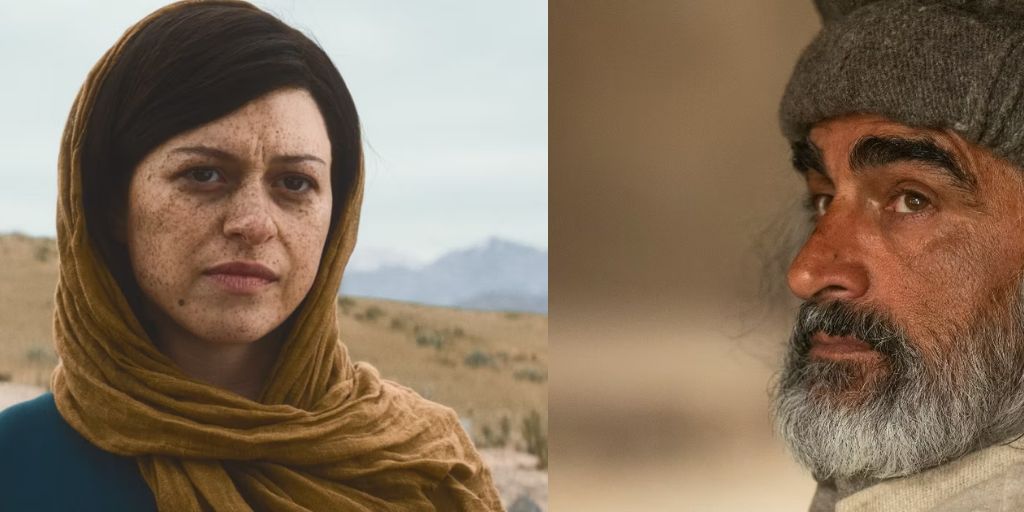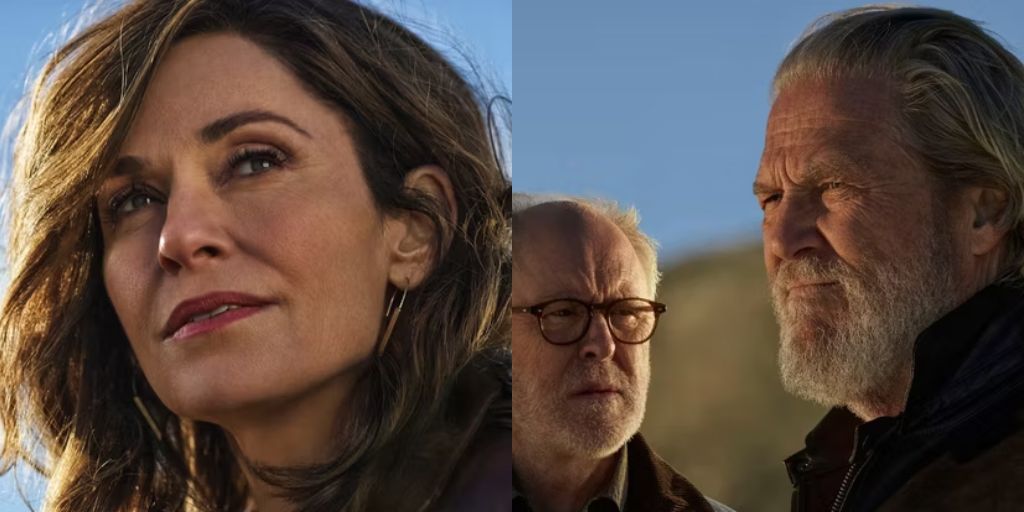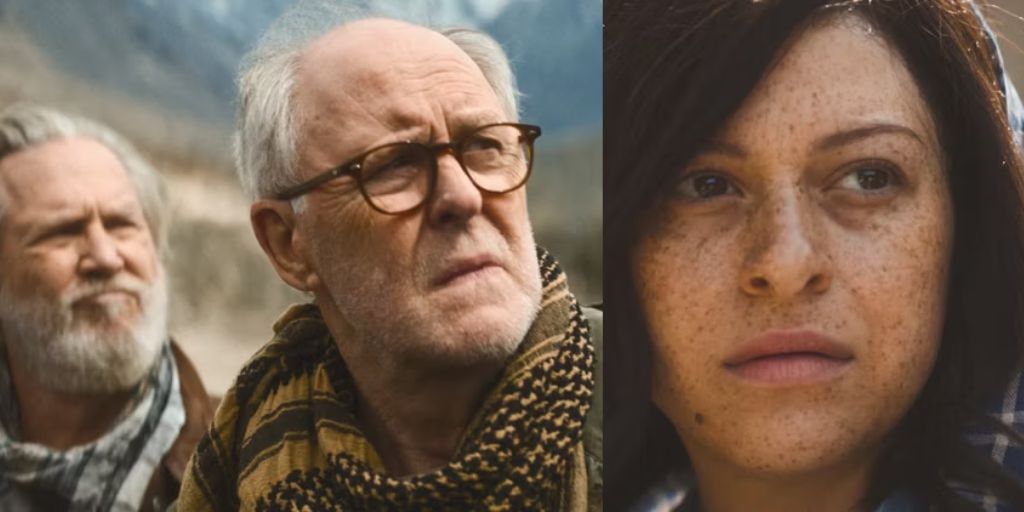For over 23 years, as a Middle Eastern woman, I’ve noticed that whenever my region is portrayed in the media, particularly American media, it often doesn’t appear favorable. Entire countries are sometimes shown as crumbling villages, filled with goats and oppressed women, while men are depicted as barbaric.
These portrayals aren’t entirely fabricated, but they certainly don’t represent the whole region. It took a friend’s recommendation for me to give The Old Man Season 1 a try, and after two days of binge-watching, I was eagerly awaiting Season 2.
More than two years after the premiere of FX’s thrilling series, Jeff Bridges, John Lithgow, and Alia Shawkat return for a second season that is just as engaging, although it feels different in tone. The dreamlike quality of Season 1, with its silent, dimly lit scenes in everyday locations, is gone. Season 2 is more grounded, but this works in favor of the story.
What Is ‘The Old Man’ Season 2 About?
If Season 1 was about “setting things up,” then Season 2 is about facing the consequences. The new season picks up right after the end of Season 1, following Dan Chase (Jeff Bridges) and Harold Harper (John Lithgow) as they continue their mission to find Chase’s daughter and Harold’s protégé, Emily (Alia Shawkat).
Emily has been taken by Afghan warlord Faraz Hamzad (Navid Negahban), and their attempts to reach Hamzad’s compound become more difficult with the arrival of Omar (Artur Zai Barrera). Omar claims to be linked to Hamzad, but his true loyalties are unclear.
Meanwhile, Emily, who has been brought to Hamzad’s compound without understanding why, is thrust into a family she didn’t know existed. She soon embraces her heritage after learning the truth. Emily becomes the standout character of Season 2 as she re-evaluates her priorities, especially when the Taliban attacks Hamzad’s village.
Jeff Bridges Shines Again in Season 2, While Others Struggle
Season 1 faced delays because of Jeff Bridges’ health scare, but it’s clear that taking time to recover was the right choice. Bridges is in top form in Season 2, physically and emotionally.

His portrayal of Dan Chase is compelling, especially in the physically intense season premiere. His return reminds us why Bridges should never be counted out.
It was a great decision to focus the first episode on Bridges and Lithgow. We didn’t see them working together much in Season 1, but in Season 2, watching them interact is a delight. Lithgow, who I mostly know from his comedic roles, brings some of that same energy, even in a serious show.
While Bridges’ character faces challenges with acceptance, Lithgow’s Harold Harper is always on the edge of a breakdown, pretending to be cool with the chaos around him.
However, the role of Zoe (Amy Brenneman) feels out of place. Although Brenneman’s performance is strong, her character’s return doesn’t make much sense.
Zoe’s decision to stay with Chase in Season 1 made sense because of the immediate threat, but her presence in Season 2 feels unnecessary. It seems like the creators wanted to keep Brenneman on board without giving her much to do.
Alia Shawkat Steals the Show in Season 2
Even though the show is called The Old Man, Season 2 is truly Alia Shawkat’s moment. While she delivered a quiet but strong performance in Season 1, her character was lost in the lies told by Dan and Abbey.
In Season 1, Shawkat’s character served more as a pressure point for Chase and Harper. By the end, we learn she is also important to Hamzad.
One big question going into Season 2 was how Emily would react to finding out that the man she thought was her father was the one who removed her and her mother from her home when she was a child. Instead of drawing this out, the show addresses it quickly in one of the most powerful moments in Episode 2.

Emily watches a home video of herself as a baby, held by a young Hamzad, and is left to come to her own conclusions. This emotionally charged moment solidifies Shawkat as the heart of the season. While the old men deal with the consequences of their past actions, Emily is breaking free and creating her own path.
Season 2 Challenges Our Assumptions
In Season 1, the danger came from hidden secrets, but in Season 2, the threat is more direct with the arrival of the Taliban. The show doesn’t hold back, showing the Taliban as a clear danger to the people of Afghanistan.
It’s a common theme that extremist groups harm those closest to them first, and the show handles this issue with depth.
The Old Man challenges us to look at the characters differently. Hamzad is introduced as a villain through Chase’s eyes because Chase has spent years hiding from him. But as the season progresses, we see that Hamzad’s actions to protect his home are not much different from what we expect from a hero.
Chase is motivated in the same way, using similar violent methods, especially in his determination to rescue his daughter. The show asks viewers to question why we see one character as a hero and another as a villain.
With this shift in focus, the eerie, dreamlike atmosphere of Season 1 is mostly gone. The settings feel more real and lived-in. There’s less voiceover, and the visions the characters have are more directly tied to the story. While I miss the strange vibe of the first season, this change makes sense for the story being told in Season 2.
Although the pacing slows down at times, The Old Man remains as engaging as ever. There are moments when the plot races forward, and other times when the show takes its time to build tension.
This stop-and-start rhythm may leave viewers needing to rewatch some parts to fully understand what’s happening. Fortunately, the show is interesting enough to make those rewatches enjoyable. With only five episodes available for review, the season still has the potential to end with the same intensity as the first.
In the second season of The Old Man, the show evolves from its dreamlike, introspective tone to a more grounded and intense narrative.
The tension builds as the characters face personal and external challenges, especially with the looming threat of the Taliban. Jeff Bridges and John Lithgow’s performances continue to attract, while Alia Shawkat truly shines as Emily, giving the season emotional depth and complexity.

The dynamic between Dan Chase and Faraz Hamzad highlights how our perceptions of heroes and villains are shaped by personal experiences and biases.
The show skillfully raises questions about loyalty, family, and survival, while showing the moral complexities that come with them. While the pacing may be slower at times, The Old Man remains engaging and thought-provoking, demanding careful attention from its audience.
As the season progresses, it brings moments of intense drama and reflection. Though some elements from the first season are missed, such as its eerie atmosphere, the shift in tone is essential for the direction the story takes. Season 2 succeeds in maintaining the show’s high quality, leaving viewers eagerly awaiting the finale and what lies ahead for the characters.
Season 2 of The Old Man premieres on FX on September 12 with its first two episodes.





